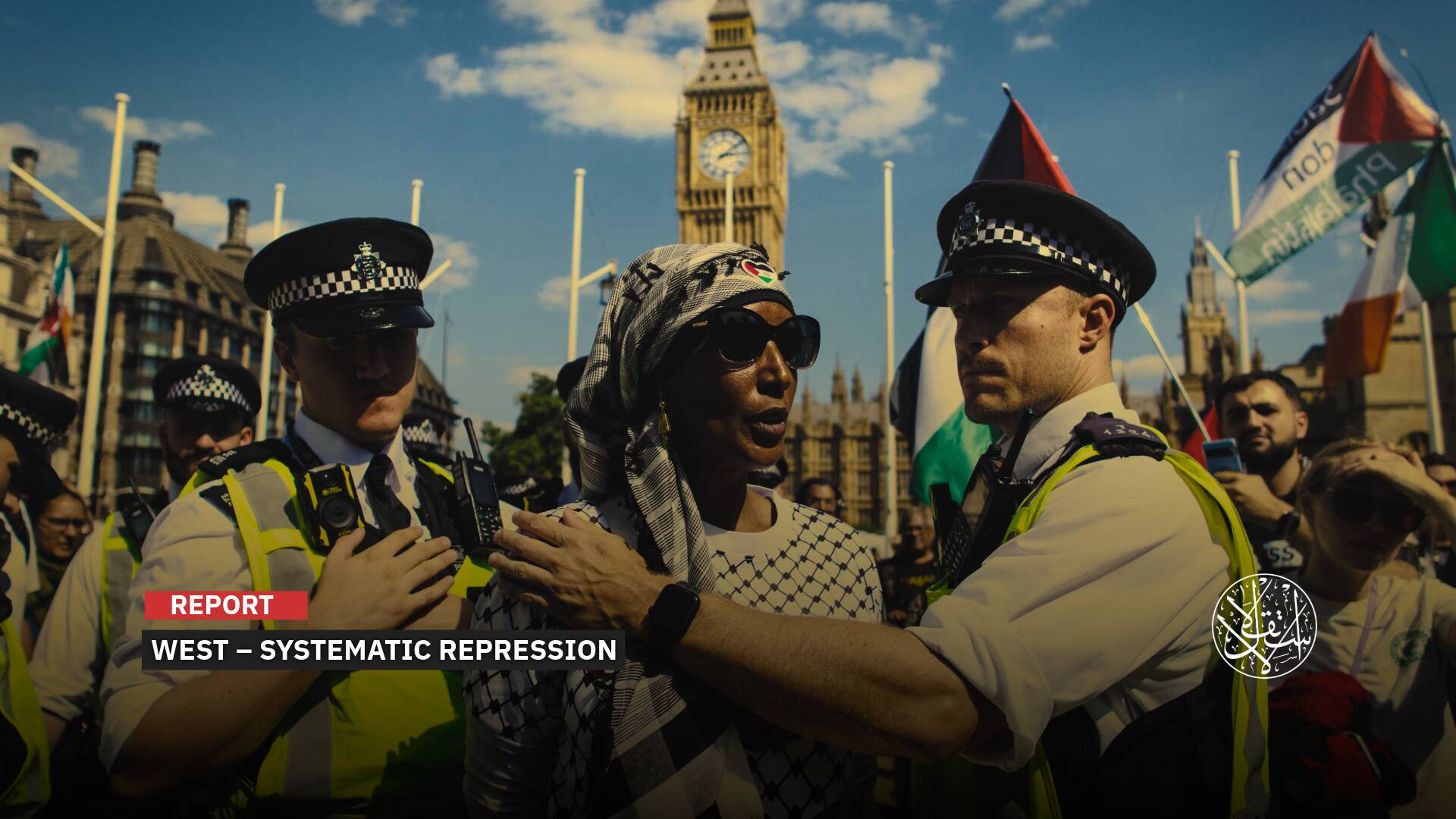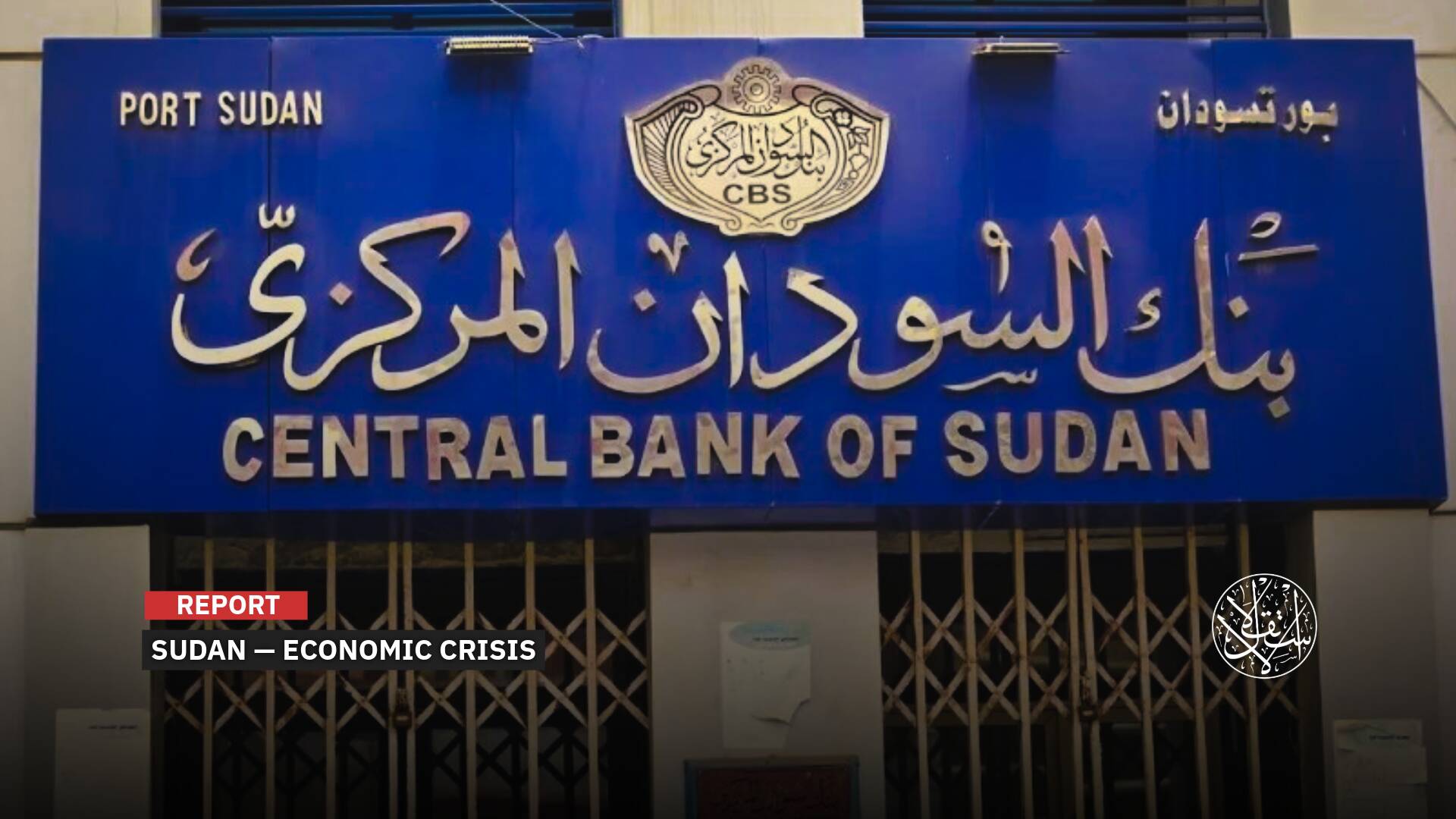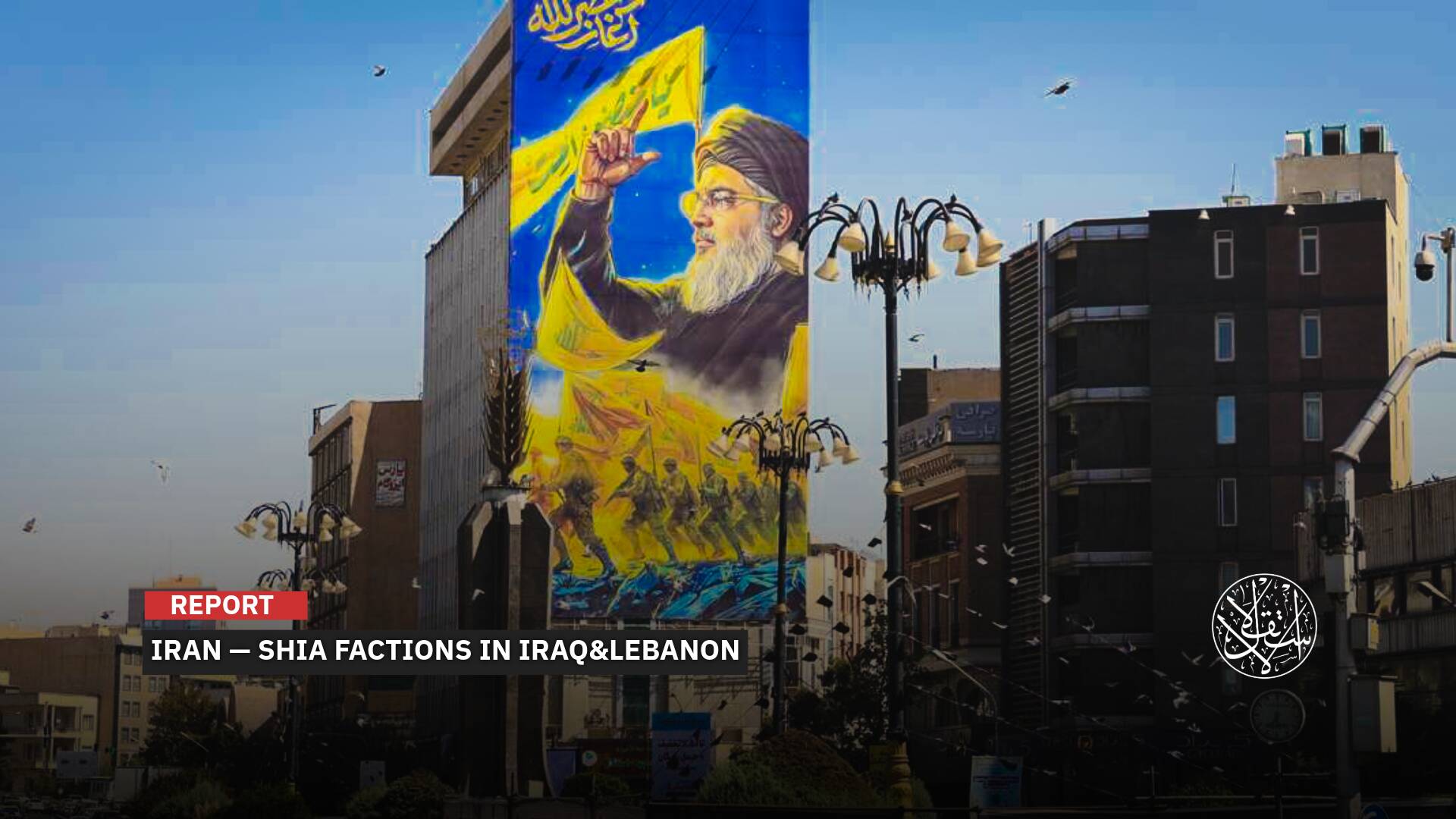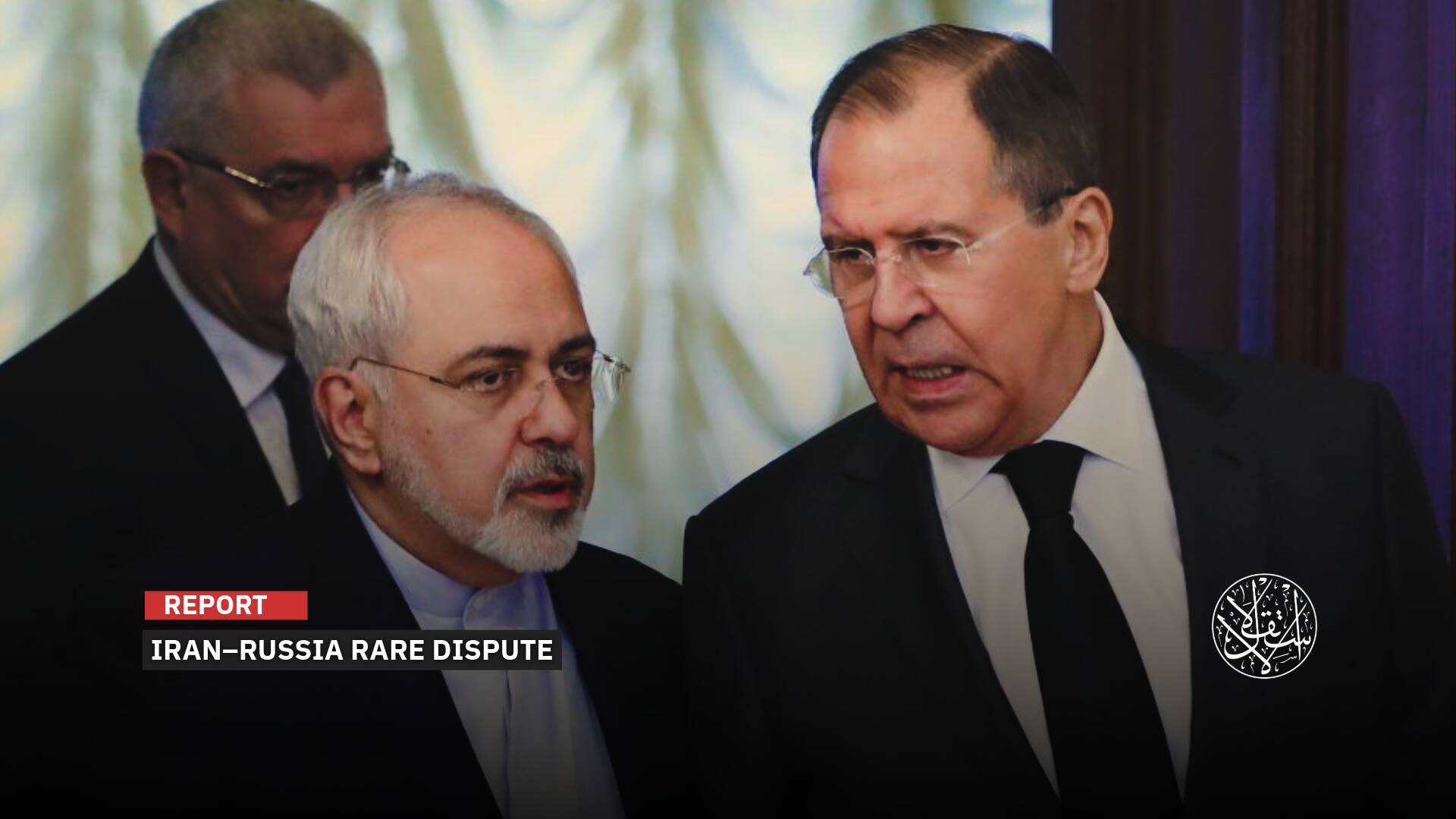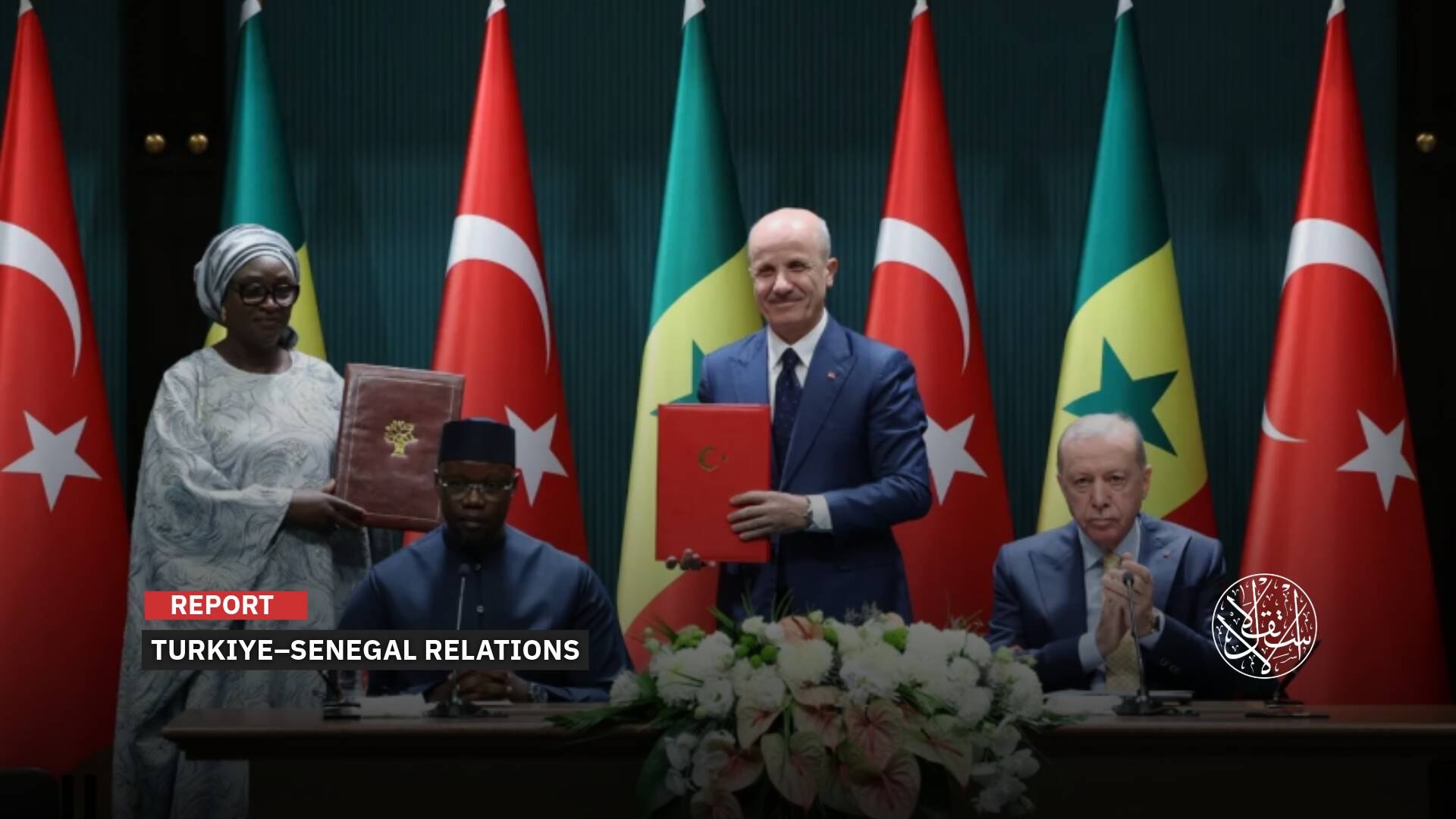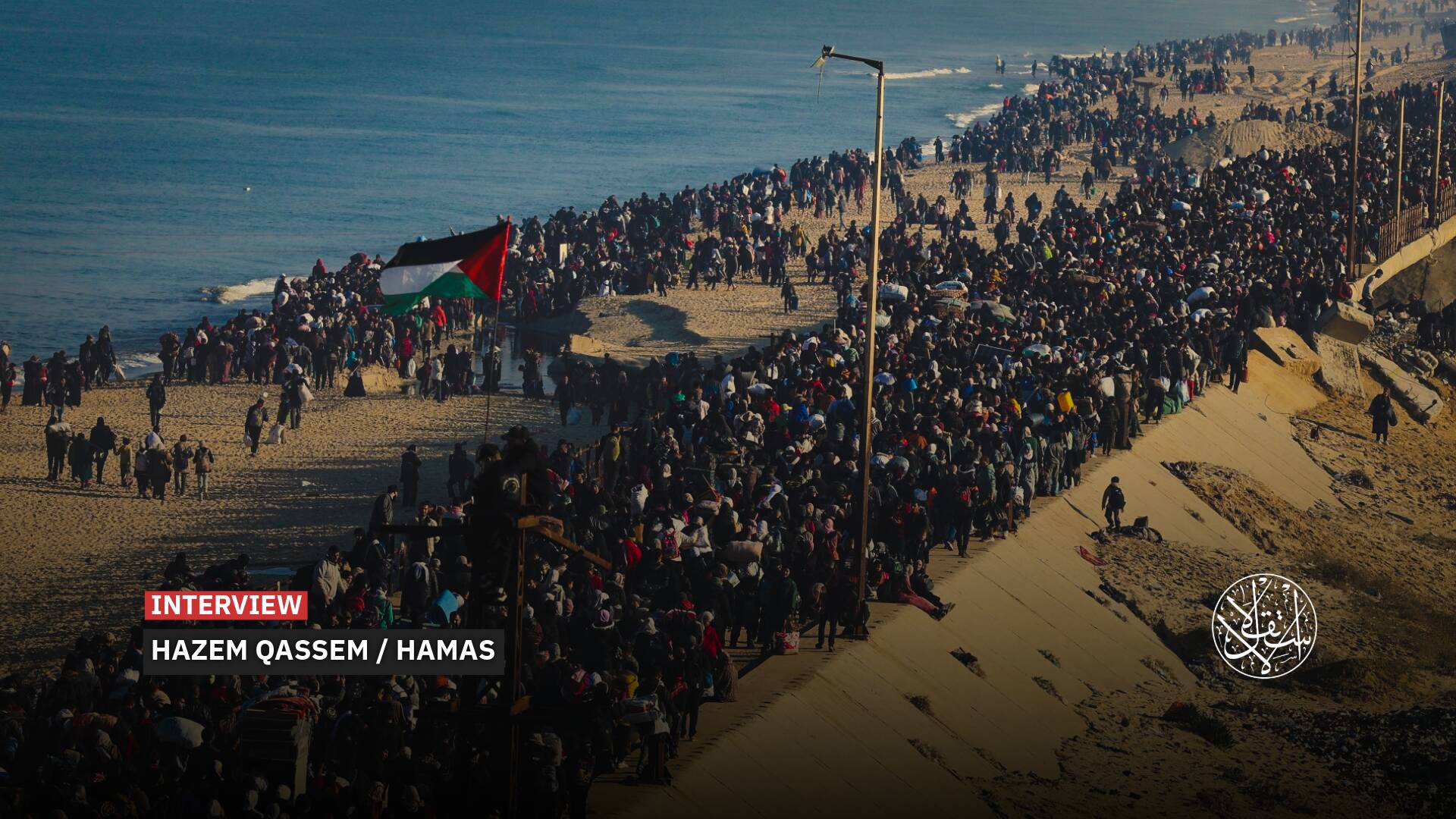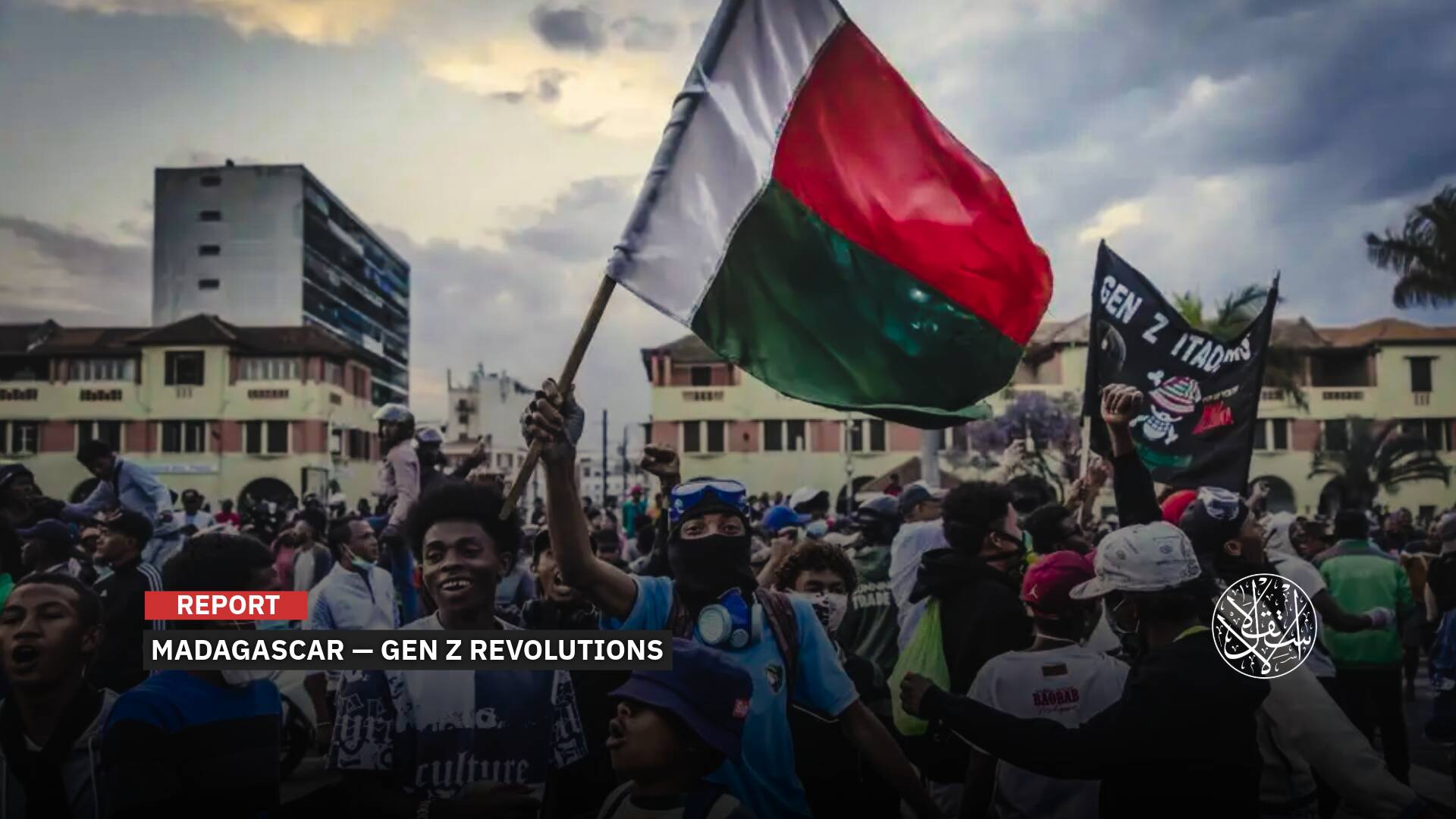Syria's Post-Assad Evolution: Gulf Reservations and Islamist Ascendancy

Concerns have emerged among Arab regimes opposed to Islamists and the Arab Spring over the prospect of a new Syrian government led by moderate Islamists, as reflected in media and semi-official reactions from the UAE, Saudi Arabia, and Egypt, as well as foreign assessments.
Western newspapers have noted that the presence of "Islamists" in power in post-Assad Syria has unsettled some Gulf rulers and Egyptian authorities, much like it has “Israel,” which sought to weaken Syria's military capabilities in an attempt to create chaos for the incoming regime.
This has raised questions about the possibility of these regimes intervening in Syria to replicate their efforts to derail the Arab Spring, as they did in Egypt in 2013, with the aim of shaping a "new Syria without Islamists."
Alternatively, they may seek to sow chaos in Syria to prevent the emergence of an Islamist-led government, reminiscent of Egypt following the 2011 revolution, when Abu Dhabi and Riyadh, through allies in movements like Tamarod and military figures such as Abdel Fattah el-Sisi, paved the way for the 2013 military coup.
In an effort to reassure Gulf states and preempt any early intervention, officials from Syria’s new rebel government held a meeting with several Arab and European ambassadors, including those from the UAE, Egypt, and Saudi Arabia, focusing on their commitment to unity, reconstruction, and cooperation with Arab nations.
This prompted Bahrain’s King Hamad bin Isa al-Khalifa to send a message to the leader of the Hayat Tahrir al-Sham group, Ahmad al-Sharrah, better known as Abu Mohammad al-Julani, expressing his country’s readiness to cooperate with the new Syrian authorities.
He also conveyed his hopes for Syria’s return to its "original role" within the Arab League, according to the Bahrain News Agency, which confirmed that the king sent the message in his capacity as president of the current Arab Summit.
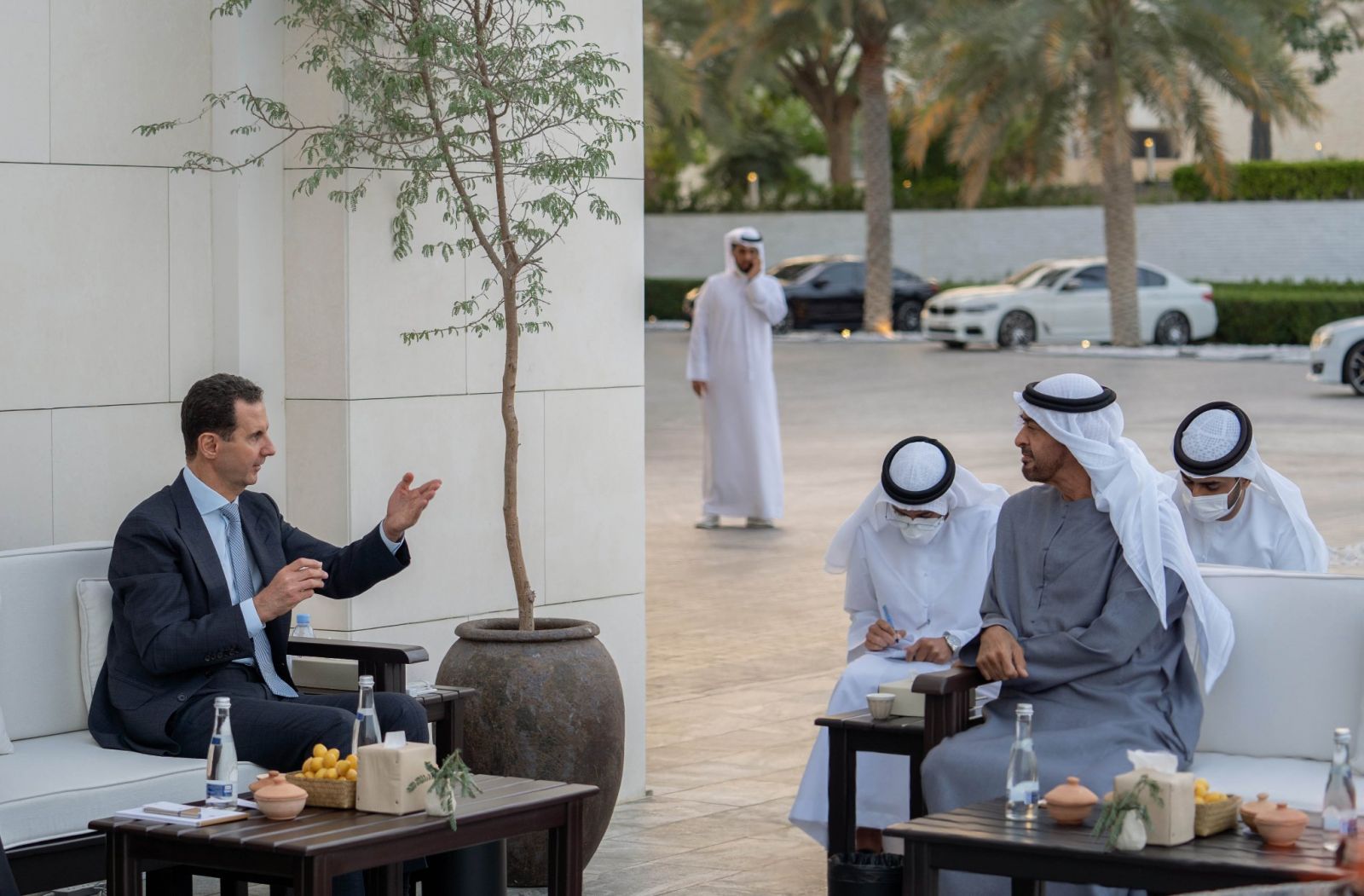
Signs of Intervention
On December 8, 2024, The Wall Street Journal reported that Gulf states, including Saudi Arabia, are working to ensure that the fall of Bashar al-Assad does not trigger a new wave of unrest against regional rulers or the resurgence of extremist groups such as ISIS, which followed the Arab Spring of 2011.
The WSJ cited Majid al-Ansari, a senior advisor to Qatar’s prime minister.
“There is a lot of trauma in the region for good news to transform into bad news very quickly,” said Majid al-Ansari “There are a lot of challenges coming ahead. There are a lot of militants on the ground. There is the possibility of Syria becoming a failed state.”
"We don’t want Syria to follow the same path as other countries after the Arab Spring, where good news turned bad," said al-Ansari.
Meanwhile, Ma'ariv, the Israeli newspaper, reported on December 11, 2024, that there is growing concern among Arab countries that, with the fall of the Syrian regime, opponents of the Arab regimes may rise up, demanding change—particularly in Saudi Arabia, Bahrain, Egypt, Jordan, and Iraq.
Sheikh Sadiq al-Ghariani, the Grand Mufti of Libya, has warned the victorious Syrian opposition of Gulf states’ attempts to undermine the Syrian revolution, drawing comparisons to the coups that followed the Arab Spring and were supported by the UAE and Saudi Arabia.
“The UAE and Saudi Arabia have invested substantial resources into undermining elected governments in Egypt and Tunisia while exacerbating conflicts such as that in Sudan.”
"Syrians should be wary of those currently in power," al-Ghariani noted.
Al-Ghariani advised Syrians to “take a lesson and beware of the plots of the enemies of the international community and its agents.”
Since the outbreak of the Arab Spring revolts, the term "counter-revolution" has emerged, referring to the opposition from Arab and regional regimes that worked to thwart the uprisings using various tools, most notably Saudi Arabia and the UAE.
Both countries were at the forefront of opposing the Arab Spring protests in Tunisia, Egypt, Yemen, and Bahrain, and later intervened with financial support for the opponents of the Islamist-led governments that came to power in Egypt, Tunisia, and Libya.
As Syrian opposition, particularly those with Islamist leanings, began to score victories against Bashar al-Assad’s regime, Saudi-backed media outlets have displayed a clear hostility towards the unfolding events in Syria.
As Bashar al-Assad’s regime began to collapse, Gulf-backed media outlets underwent a notable shift in their coverage of Syria, marking a stark departure from the narrative that had prevailed for years.
However, the rhetoric remained cautious, subtly warning of "terrorists" and "extremists" in the context of post-Assad Syria.
The media of the counter-revolutionary camp largely ignored the full spectrum of Syrian opposition factions that fought against al-Assad’s regime, focusing exclusively on Hayat Tahrir al-Sham—formerly known as Jabhat al-Nusra—to suggest its continued affiliation with al-Qaeda, thus alienating Arab audiences.
This negative framing was frequently used when discussing opposition forces' control over Syrian cities, implying that these areas had been "occupied" by foreign fighters rather than liberated, as claimed by the opposition, according to a study by Amad on December 12, 2024.
Seeking Help from ‘Israel’
Egypt’s official stance on the Syrian revolution emerged from two contradictory sides.
On one hand, a statement from the Egyptian Ministry of Foreign Affairs subtly suggested potential cooperation with the new Syrian regime; on the other, leaks from Israeli media outlets hinted at the head of the regime Abdel Fattah el-Sisi’s deep concerns over the rise of Islamists to power in Syria, to the point of reportedly seeking Israeli assistance for his regime.
Sisi remained silent on al-Assad’s fall and the subsequent Israeli airstrikes that crippled Syria’s military capabilities.
In response, the Ministry of Foreign Affairs issued a vague and non-committal statement on 8 December 2024, emphasizing Egypt’s keen interest in the changes unfolding in Syria.
The statement reiterated Egypt’s support for Syria’s sovereignty and territorial integrity but made no reference to the new leadership in Damascus.
It called for the initiation of a comprehensive political process aimed at ushering in a new phase of internal reconciliation and peace.
However, Israeli daily Maariv claimed on 11 December 2024 that Sisi had appealed to “Israel” for help following al-Assad’s fall, fearing the resurgence of an Arab Spring-style uprising led by the Muslim Brotherhood.
In a striking development, Maariv’s military editor, Avi Ashkenazi, revealed that Egyptian head of the regime Abdel Fattah el-Sisi allegedly requested an urgent meeting with Israeli officials, including Chief of Staff Herzi Halevi and Shin Bet head Ronen Bar, to discuss his growing fears of Syrian opposition forces seizing power in Damascus.
El-Sisi reportedly sought to prevent a scenario resembling Syria’s revolution from spreading to Egypt.
“The Egyptians yesterday urgently requested a meeting with the Chief of Staff, Lt. Gen. Herzi Halevi, and the head of the Shin Bet. The two met for long hours yesterday with their counterparts in Egypt. It is likely that due to the new situation, Halevi and Halevi may accumulate many miles in the "frequent flyer" club, because they are likely to be reciprocated in all the capitals of the region, with an emphasis on the Gulf countries,” as reported by Maariv.
Maariv claimed that el-Sisi had made an urgent plea to “Israel” to help safeguard his regime from the kind of popular uprisings that had toppled al-Assad government, sparking concerns of a broader regional contagion.
This appeal, according to the report, was the main catalyst behind the visit of both Halevi and Bar to Cairo on 10 December 2024, where they met their Egyptian counterparts to discuss “hot issues” surrounding the stability of the region.
The revelations provoked outrage among some Egyptians, who expressed their dismay at el-Sisi’s reported reliance on “Israel,” with one commentator stating, “If seeking the help of Egypt’s historic enemy, Israel, against his own people is not betrayal, then what is?” They argued that “initiating a real dialogue with national opposition forces would be far easier than reaching out to the Israeli enemy.”
The report in Maariv painted a picture of Arab leaders as weak and fearful of any potential Arab Spring-style uprisings following the 2011 wave of revolutions.
It also sought to portray “Israel” as the last refuge for regional rulers seeking to ward off any threats posed by popular movements.
Ashkenazi further emphasized in an interview with Maariv Radio that the Israeli security establishment was deeply concerned about the potential repercussions of the Syrian conflict on neighboring countries, particularly Egypt and Jordan.
According to Maariv, there are expectations in “Israel” that Halevi and Bar may soon visit other Arab capitals, especially in the Gulf, as leaders in the region begin to feel the aftershocks of Syria’s upheaval.
On 10 December 2024, the Egyptian state-run Cairo News Channel reported that a high-level Israeli delegation was currently visiting Cairo.
The report claimed the visit was “part of efforts to negotiate a cease-fire in Gaza and facilitate the delivery of humanitarian aid to the region,” with no further details.
Syrian Scenario
The fall of Bashar al-Assad’s regime, followed by the rise of moderate Islamists—some of whom are reportedly influenced by the ideologies of prominent Muslim Brotherhood figures—has sparked alarm in Egypt, prompting state media and pro-government figures to launch a smear campaign against the Syrian Opposition.
The Egyptian broadcaster Lamis Elhadidy was one of the mouthpieces who repeated a single, consistent message for the regime’s media and online trolls.
Her message centered on an unfounded fear that Syria might be divided or turned into a "stronghold for terrorists and the Muslim Brotherhood, threatening other countries,"
According to Al-Estiklal, Ahmed Moussa, a prominent pro-regime broadcaster, similarly warned that the collapse of al-Assad's regime could lead to the establishment of an "Islamic Emirate of Syria" or the rise of a "new Taliban state in the Levant."
Mostafa Bakry, a journalist and member of the People's Assembly of Egypt, also cautioned that the chaos in Syria could spill over into the rest of the Arab world.
"If Damascus falls, Cairo must prepare for a battle of destiny," he warned, suggesting that the repercussions could be far-reaching and destabilizing for the region as a whole.
In an interview with Asharq al-Awsat on December 8, 2024, former Egyptian Assistant Minister of Foreign Affairs, Hussein Haridi, remarked that Cairo is observing the situation from a distance and would not be swept up by the apparent joy expressed in some media outlets over the fall of al-Assad.
He stressed that Egypt was questioning who would lead Syria’s next phase, the relationship between the Syrian opposition and Armed opposition factions, and whether they would adopt an Islamic or a secular system of governance.
Journalist Jamal Sultan pointed out that what most terrifies el-Sisi and his regime is that the success of Syria’s revolution has shattered the core of their repeated propaganda that "Egypt is the army, and if the army collapses, the state disappears."
In contrast, he noted, the Syrian army evaporated, yet the state endured, with even an improvement in the living conditions of its people.
Sultan further emphasized that the Syrian revolution had proven that it is the people, not the military, that constitute the state—something that has sent Egypt's state-run media into a state of hysteria.
According to Al-Estiklal, Sultan, in a separate tweet, issued what he described as "an urgent open letter to those concerned in Egypt."
He argued that the success of an armed popular revolution in toppling a regime as entrenched as al-Assad’s family, which had ruled for nearly 60 years, sends a powerful message to Egypt.
Jamal Sultan further elaborated that al-Assad’s regime “was built on a vast military institution, an intricate and controlling security and intelligence network, substantial regional and international military and intelligence support, and an all-encompassing system of media, judicial, educational, and religious control.Despite this immense apparatus, the regime ultimately collapsed.”
Sultan warned that the "sense of injustice, marginalization, and repression" felt by millions of Egyptians for a variety of reasons has left the country "primed with anger" and "tightly packed with combustible fuel, ready to ignite over any sudden event."
He called on the head of the regime el-Sisi’s government to undertake reforms in several key areas: legislation, media, free elections, and to halt the military’s interference in the economy.
Sultan also criticized the regime's use of electronic trolls and state-backed media personalities who constantly warn of a "Syrian scenario" and invoke fear over what happened in Syria.
He described these efforts as "futile and misleading," asserting that the proper way to address the problem is not through attempts to sedate the patient, but by curing the illness itself.
Saudi Shift
Before Bashar al-Assad's downfall, Saudi Arabia had been one of the countries seeking to re-engage with the Syrian regime, following a period of diplomatic rupture after the Arab Spring of 2011 and al-Assad's brutal crackdown.
However, as Saudi Arabia sought to reintegrate Syria into the Arab fold, The Wall Street Journal reported on 12 April 2023 that Saudi efforts to restore Syria’s place in the Arab League faced resistance from several of its allies, including Morocco, Kuwait, Qatar, and Yemen.
These nations are currently opposed to Syria's return to the Arab League, with a bloc of five Arab states, led by Qatar and Egypt, standing as a barrier to Saudi ambitions. (The head of the regime el-Sisi later met with al-Assad in November 2023 and spoke with him in July 2024).
Egypt's head of the regime Abdel Fattah el-Sisi, who later met al-Assad in November 2023 and spoke with him in July 2024, reflected similar diplomatic confusion.
Just as confusion emerged in Egypt’s stance—caught between an official position implicitly supporting Syria’s new regime and a public refusal to align with the regime’s media and online supporters—a similar uncertainty has surfaced in Saudi Arabia’s approach.
Saudi Arabia’s first official statement following al-Assad's fall on 8 December 2024 was notably supportive of the changes unfolding in Syria.
The kingdom expressed its solidarity with the Syrian people, stating that “Saudi Arabia urged the international community to stand by the Syrian people and extend their cooperation in everything that serves Syria and achieves the aspirations of its people and not to interfere in its internal affairs.”
The Saudi Foreign ministry emphasized that “it is time for Syrians to enjoy the dignified life they deserve, calling on all segments of Syrian society to contribute to shaping a future marked by security, stability, and prosperity.”
“Saudi Arabia expresses satisfaction with steps to ensure Syrian people's safety and preserve state institutions and capabilities of the Syrian state,” aiming to prevent the country from descending into chaos and fragmentation.
“The statement concluded with Saudi Arabia’s hope for Syria’s return to its rightful position in the Arab and Islamic worlds,” according to Saudi Gazette.
In a statement issued on 10 December 2024, Saudi Arabia separately criticized “Israel” for what it called its “determination to undermine opportunities for Syria to restore its security, stability and territorial integrity.”
The Saudi Foreign Ministry declared that “the assaults carried out by the Israeli occupation government, including the seizure of the buffer zone in the Golan Heights and the targeting of Syrian territories by Israeli occupation forces, affirm Israel's continued violation of international law and its determination to undermine opportunities for Syria to restore its security, stability, and territorial integrity.”
However, within Saudi media circles, including al Arabiya and Asharq al-Awsat, confusion was evident among journalists and commentators regarding the evolving situation in Syria.
According to Al-Estiklal, even al Arabiya, Saudi Arabia’s propaganda arm, heralded Israel’s victory, crowning it as the region’s new hegemon, with little left but to pledge allegiance to Benjamin Netanyahu as the region’s new leader, as noted by Ahmed bin Rashid bin Saeed on X.
In line with Saudi Arabia’s recent policy, Riyadh’s media figures have consistently positioned themselves as adversaries to anything associated with "political Islam." Some continued to frame the unfolding events in Syria, labeling the opposition as "Islamic terrorist factions."
However, key figures within the Saudi media establishment have taken a different approach, one that leans toward supporting the unfolding events and condemning al-Assad’s regime.
Notably, Saudi Arabia – according to media leaks – declined to respond to calls from Assad once the battle had begun.
Political analysts suggest that the official Saudi position may be somewhat pleased with the developments in Syria, viewing them through a singular lens: as an opportunity to root out Iranian influence in Syria and restore its own clout in Lebanon, a region where Riyadh has been sidelined in recent years by Tehran and Hezbollah.
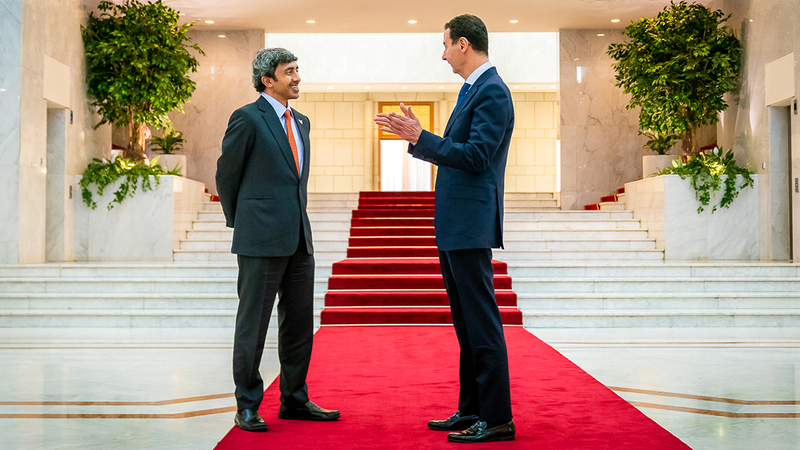
UAE's Setback
The victory of the Syrian revolution, 14 years after its spark ignited, has thrown the policies of many of al-Assad’s allies into disarray, particularly those of the UAE, Iran, and Russia.
Since 2018, Abu Dhabi has played a pivotal role in pushing for Syria’s return to the Arab League, a goal that was achieved in 2023.
Abu Dhabi has stated that its foreign policy objectives in Syria are centered on strengthening its influence both within the country and across the Arab region, as part of its broader strategy to counter Iranian power.
Thus, the fall of al-Assad presents significant political, security, and economic challenges for the UAE’s rulers, especially considering their ambitions for heavy investment in the country.
As a result, the UAE’s stance on the revolution has been marked by the same confusion seen in Egypt and Saudi Arabia, yet with a more subtle approach that indicates a pragmatic engagement with the revolution’s success.
Abu Dhabi has been deeply involved in supporting al-Assad’s regime, despite having indirectly backed the 2011 uprising against him.
However, it quickly reestablished ties with al-Assad in 2018, taking on the responsibility of securing Syria’s return to the Arab League for both economic and political reasons.
The UAE was the first Arab country to normalize relations with the regime that killed over half a million of its people and displaced more than 12 million, doing so in 2018. It also pressured the U.S. and the EU to lift sanctions on al-Assad's government.
A report by Emirates 71 on December 11, 2024, reveals that Abu Dhabi’s support for al-Assad from 2018 to 2024 was driven by several political and economic motives, alongside its hostility to Islamic forces, which al-Assad himself had also been fighting.
The report highlights that the UAE viewed al-Assad as having survived the Arab Spring, while the Syrian revolution—largely led by factions branded as "political Islam"—was defeated.
This, according to the UAE, was a significant gain, aligning with its broader campaign against Islamist groups across the Arab world.
Thus, it saw al-Assad’s regime as a bulwark against Islamic groups dominating the armed opposition in Syria.
Part of Abu Dhabi's support aimed at enhancing its regional influence and role as a key player, building strong ties with Damascus, a major regional force, and pulling al-Assad out of international isolation, despite being fully aware of his crimes against his own people.
The UAE's backing of al-Assad was also driven by economic interests, particularly the opportunity to tap into Syria’s post-war market, including investments in reconstruction and infrastructure.
Another factor in the UAE's support for al-Assad was its alignment with “Israel,” as Abu Dhabi sought to ensure Damascus remained distanced from conflict with “Tel Aviv.”
Following the fall of al-Assad, whom Abu Dhabi had supported and preferred to see remain in power, the UAE adopted a cautious stance towards the Syrian revolution, focusing its official statements on calls to maintain security and stability in the region and advocate for a political solution.
On December 9, 2024, the UAE Ministry of Foreign Affairs issued a vague statement, similar to Egypt's, stating that it “is closely monitoring the ongoing developments in the Syrian Arab Republic, and reiterates its commitment to the unity and integrity of the Syrian state, as well as to ensuring security and stability for the brotherly Syrian people.”
In the statement, “the Ministry of Foreign Affairs (MoFA) called on all Syrian parties to prioritize wisdom during this critical juncture in Syria's history, in a manner that fulfills the aspirations and ambitions of all segments of the Syrian population.”
“The Ministry stressed the need to safeguard the Syrian national state and its institutions, and to prevent any descent into chaos and instability,” as reported by the Ministry of Foreign Affairs (MoFA).
According to the Emirates 71’s report, the UAE's loss of Syria under al-Assad's leadership represents a continued setback in Abu Dhabi’s efforts to influence Middle Eastern politics, especially if new forces emerge that could clash with its interests.
Over the past fifteen years, the UAE’s foreign policy has struggled, with its local allies in Sudan, Yemen, Libya, and Somalia failing to meet its objectives, leading to strained relations with new regimes in those countries.
Additionally, its support for Ethiopia has further strained ties with Egypt’s military leadership.
The report suggests that the UAE’s position remains heavily shaped by its hostility toward Islamists, particularly the Muslim Brotherhood. Therefore, it is likely that the UAE will move against the Syrian opposition in the future.
Anwar Gargash, the UAE's diplomatic advisor to the president, expressed "concern" over the Islamic affiliations of the Armed opposition factions that toppled al-Assad and took power in Damascus, with Hayat Tahrir al-Sham at the forefront.
"We hear some reasonable, rational language about unity, not imposing a system on all Syrians […] the nature of the new forces, the affiliation with the [Muslim] Brotherhood, the affiliation with Al-Qaeda, I think these are all indicators that are quite worrying," Gargash stated in a speech at the World Policy Conference in Abu Dhabi.
Sources
- Assad’s Downfall Marks a New Realignment in the Middle East
- Urgently Read: The Main Reason for the Chief of Staff's Visit to Egypt
- “Israel” fears Assad's fall could embolden protesters in Egypt and Jordan
- From Support to Challenge: Abu Dhabi Confronts Shifting Dynamics in Syria [Arabic]
- The Syrian Revolution: How Did Anti-Revolution Media Respond? [Arabic]
- Egypt and the Fall of Bashar: Official Caution and Concerns Over Syria's Unity [Arabic]
- Saudi Arabia expresses satisfaction with steps to ensure Syrian people's safety and preserve state institutions
- UAE Calls for Unity of Syria, and Integrity of the National State


